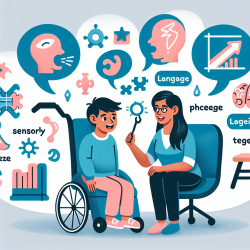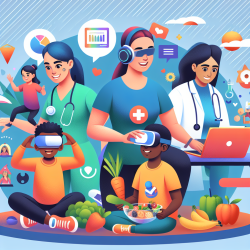Introduction
In the realm of healthcare, the attitudes of practitioners toward diverse patient groups can significantly impact patient outcomes. A recent study titled "Medical Students’ Attitudes Toward Gay Men" offers valuable insights into the perceptions held by future healthcare providers and highlights areas for improvement in medical education and practice. This blog aims to translate these findings into actionable strategies for practitioners, particularly those involved in online therapy services for schools, such as TinyEYE, to enhance their skills and provide more inclusive care.
Understanding the Study
The study conducted at the University of California, Davis, surveyed medical students to assess their attitudes toward gay men, focusing on behavior, personhood, civil rights, and male toughness. The survey revealed that while most students held positive views regarding gay persons and their civil rights, there were notable negative attitudes concerning intimate behaviors and traditional male roles.
Key Findings and Implications
- Behavioral Attitudes: A significant minority of students expressed discomfort with gay male behavior, indicating a need for educational interventions that address these biases.
- Demographic Disparities: Younger students and males were more likely to hold traditional views on male toughness and exhibit negative attitudes, suggesting targeted educational efforts could be beneficial.
- Correlation with Male Toughness: Negative attitudes toward gay behavior were linked to normative views on male gender roles, emphasizing the importance of discussing masculinity in medical education.
Actionable Strategies for Practitioners
Based on the study's findings, practitioners can take several steps to improve their skills and provide more inclusive care:
- Engage in Continuous Education: Practitioners should seek out training programs that address implicit biases and promote cultural competence, focusing on the diverse needs of LGBT individuals.
- Implement Inclusive Practices: Develop and implement policies that ensure all patients feel respected and valued, regardless of their sexual orientation or gender identity.
- Facilitate Open Discussions: Encourage open dialogue about biases and stereotypes within the workplace to foster a more inclusive environment for both staff and patients.
- Leverage Data-Driven Approaches: Utilize research findings to inform practice changes and measure the impact of interventions on patient outcomes.
Encouraging Further Research
While the study provides valuable insights, it also highlights the need for ongoing research to better understand and address biases in healthcare settings. Practitioners are encouraged to engage with current research and contribute to the development of evidence-based strategies for improving care for sexual minorities.
To read the original research paper, please follow this link: Medical students’ attitudes toward gay men.










